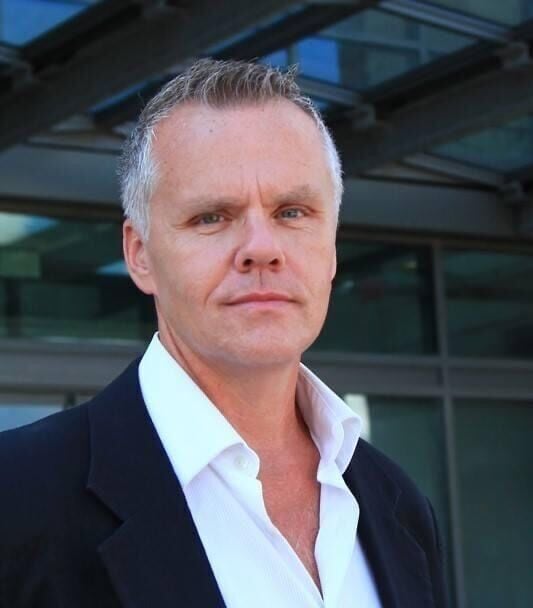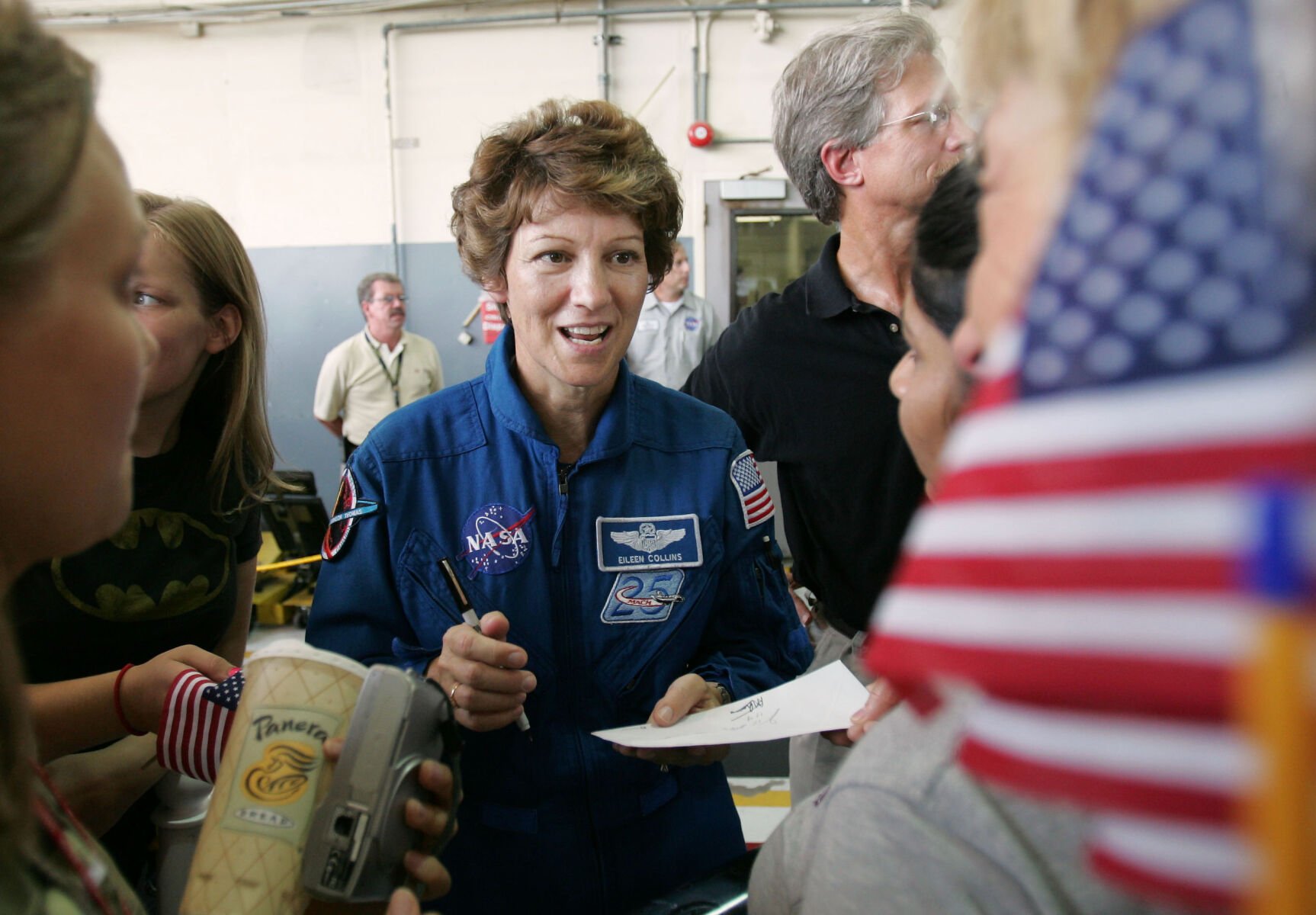Jerry Davich: Why must humans explore space? ‘It’s in our nature,’ former astronaut says
“We are all in the gutter, but some of us are looking at the stars.” — Oscar Wilde
Eileen Collins was 12 when Apollo 11 landed on the moon on July 20, 1969.
“And I remember it,” she said.
I do, too.
I was 7, standing on the front porch of my family’s home in Gary, Indiana, and squinting to get a glimpse of the man on the moon, Neil Armstrong. More than half a billion people watched on television as the first human set foot on another world.
“That’s one small step …” Armstrong said.
Collins took countless small steps and many giant leaps to become a NASA astronaut, a U.S. Air Force colonel, a flight instructor and test pilot. She was the first woman to pilot the space shuttle and the first to command a shuttle mission.
“The Earth’s population will need to spread throughout the universe. We are only taking baby steps now,” Collins told me.
Last month, NASA announced plans to return to the moon with a four-member astronaut crew including the first woman, the first person of color and the first Canadian on a lunar mission through the Artemis program. This 10-day flight, scheduled for next year, will be the first step toward establishing a long-term presence on the moon for science and exploration through Artemis.
“Countries that are strong and remain strong are countries that explore,” Collins said. “Remember, we landed on the moon in 1969 and stated ‘We come in peace for all mankind.’ We did not claim to own the moon. Will other countries do the same?”
I asked Collins, who’s 66, to explain why we, as humans, should spend so much time, energy and money on space exploration when our planet has so many obvious problems.
Collins cited secondary reasons for space exploration, such as finding new materials, sources of energy and technologies, as well as a better understanding of the human body, developing new medicines and observing Earth from space.
“Whether we explore space or not, other countries like China, India, Russia will definitely go to the moon and Mars,” she said. “The countries that go first will be the ones to set the rules and regulations. I would like to see the United States do that.”
Collins wrote the book “Through the Glass Ceiling to the Stars: The Story of the First American Woman to Command a Space Mission.”
Edwin “Buzz” Aldrin, one of the first astronauts to step on the surface of the moon, wrote in his review of Collins’ book: “I hope that a young explorer who reads Eileen’s book will be inspired to become the first human on Mars.”
The inclusion of the first woman and person of color on this particular mission will influence a new generation of space explorers.
“I know that many more young people will choose careers in science, technology, engineering and math if they see role models who inspire them to take on the tough subjects and go on to create, invent and discover,” she said.
I asked the relevance of returning to the moon after 50 years, a long distance between the latest moon landing in 1972 and the Artemis program.
“There are many reasons, I believe. The primary one is the cost,” she replied. “These missions are also risky, and I believe the Apollo program was shut down in 1972 for both cost and risk. We beat the Soviet Union, and we proved it could be done.”
Our nation chose to build a space station as its next space exploration project. The shuttle program flew from 1981 to 2011.
“Now the U.S. is ready, based on what we have learned from shuttle and station, to go deeper into space,” she said. “We are going to the moon, primarily to test the equipment that will be needed later for a Mars mission. The ultimate goal is humans on Mars.”
A space trip to Mars will take six months to two years, depending on where the planets are around the sun. It would be too risky to skip the moon and go straight to Mars, Collins said.
“Instead, the propulsion and life-support equipment will be tested in a closer environment, the moon, which is only three days away,” she said. “If something breaks down or there is an emergency, it is faster to return the astronauts to Earth. Once the equipment reaches a certain reliability level, it will be ready to go to Mars.”
The debate isn’t whether we should continue space exploration. The question is how far we can go into space to explore our distant options.
Humans are hardwired to explore, Collins said. It’s in our nature. It’s in our history. And it should be in our future. Some of us need to look at the stars from the gutters of our troubled planet.


